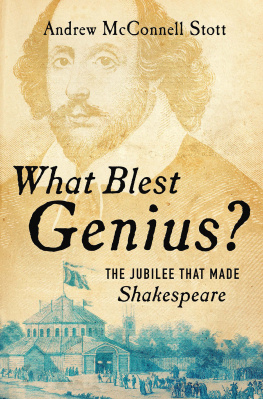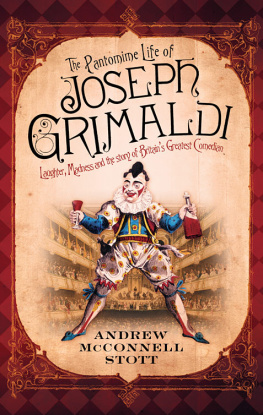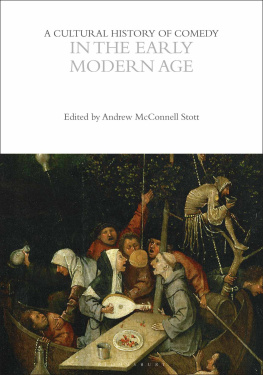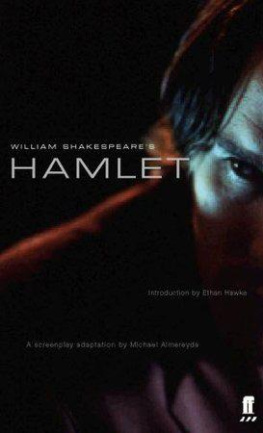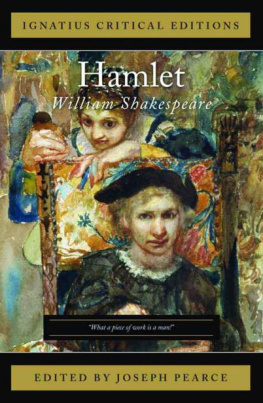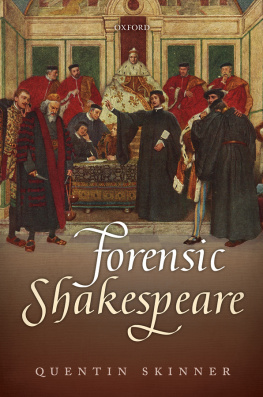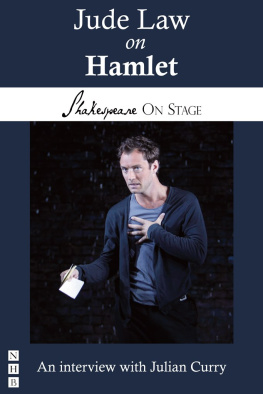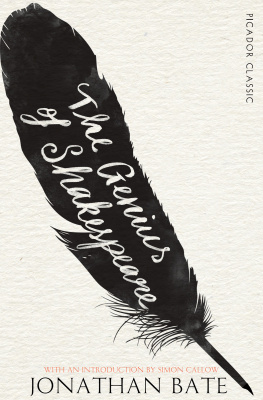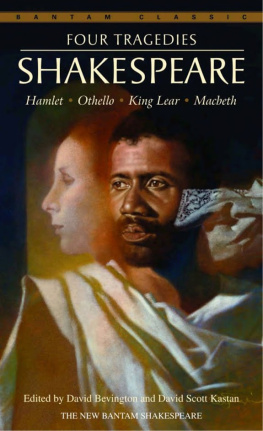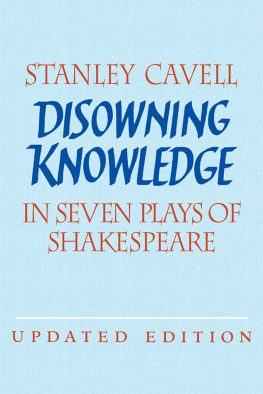Contents
Guide

ALSO BY ANDREW McCONNELL STOTT
The Poet and the Vampyre:
The Curse of Byron and the Birth of
Literatures Greatest Monsters
The Pantomime Life of Joseph Grimaldi:
Laughter, Madness and the Story of
Britains Greatest Comedian
Comedy
Ghosts:
Deconstruction, Psychoanalysis, History
(editor, with Peter Buse)
What Blest
Genius?
THE JUBILEE THAT MADE
SHAKESPEARE
Andrew McConnell Stott

Copyright 2019 by Andrew McConnell Stott
All rights reserved
First Edition
For information about permission to reproduce selections from this book, write to
Permissions, W. W. Norton & Company, Inc., 500 Fifth Avenue, New York, NY 10110
For information about special discounts for bulk purchases, please contact W. W. Norton Special Sales at specialsales@wwnorton.com or 800-233-4830
Book design by JAM Design
Production manager: Beth Steidle
The Library of Congress has cataloged the printed edition as follows:
Names: Stott, Andrew McConnell, 1969 author.Title: What blest genius? : the jubilee that made Shakespeare / Andrew McConnell Stott.Description: First edition. | New York : W.W. Norton & Company, [2019] | Includes bibliographical references and index.Identifiers: LCCN 2018051189 | ISBN 9780393248654 (hardcover)Subjects: LCSH: Shakespeare, William, 15641616Anniversaries, etc. | Garrick, David, 17171779.Classification: LCC PR2923 .S76 2019 | DDC 822.3/3dc23 LC record available at https://lccn.loc.gov/2018051189
ISBN: 9780393248661 (ebk.)
W. W. Norton & Company, Inc., 500 Fifth Avenue, New York, N.Y. 10110
www.wwnorton.com
W. W. Norton & Company Ltd., 15 Carlisle Street, London W1D 3BS
FOR MUM AND DAD

Since 1824, the Warwickshire town of Stratford-upon-Avon has held a birthday celebration in honor of William Shakespeare, its most famous son. Music plays, banners are unfurled, and town criers from surrounding communities lead the celebrants in three hearty cheers as they parade through quaint and garlanded streets. In 2016, to mark the four hundredth anniversary of Shakespeares death, the celebration doubled also as a funerary parade, as by custom, Shakespeare is said to have been born and died on the same dateApril 23which (coincidentally or otherwise) also happens to be St. Georges Day, the national day of England. The 2016 celebration acknowledged this duality by beginning in funerary mode as hundreds of respectful devotees, including celebrities, schoolchildren, and dignitaries from around the world, paraded mournfully until the halfway point, when the mood was transformed by the arrival of a New Orleans jazz band who led them joyfully to the poets graveside at Holy Trinity Church for the laying of wreaths.
The night before the parade , Holy Trinity was the site for a performance that it had first hosted 247 years earlier and never again since, a long poem in praise of Shakespeare set to musical accompaniment that had originally been delivered by the actor and theatre manager David Garrick. The Dedication Ode, as it was known, was the centerpiece of the worlds first literary festival, the Shakespeare Jubilee of 1769, and the subject of this book. Re-creating the ode was an especially fitting way to mark a milestone anniversary, as it provided Stratford with an opportunity to acknowledge the historical debt it owed to Garrick not only for the role he played in making the town a site of tourism and literary pilgrimage but in cementing forever its civic pride by ensuring Shakespeares immor tal fame.
AIR
I
Thou soft-flowing Avon , by thy silv er stream,
Of things more than mortal, sweet Shakespear wo uld dream,
The fairies by moonlight dance round his green bed,
For hallowd the turf is which pillowd his head.
II
The love-stricken maiden, the soft-sighing swain,
Here rove without danger, and sigh wit hout pain,
The sweet bud of beauty, no blight shall h ere dread,
For hallowd the turf is which pillowd his head.
III
Here youth shall be famd, for their love, and th eir truth,
And chearful old age, feel the spirit of youth;
For the raptures of fancy here poets sh all tread,
For hallowd the turf is that pillowd his head.
IV
Flow on, silver Avon , in song ever flow,
Be the swans on thy bosom still whiter than snow,
Ever full be thy stream, like his fame may it spread,
And the turf ever hallowd which pillowd his head.
Contents
King George III was not mad about Shakespeare. Was there ever such stuff as the great part of Shakespeare? he complained to the novelist Frances Burney, listing all the characters and plays he objected to. Only its Shakespeare , and nobody dare abuse him... one should be stoned for saying so!
Why would the king, a monarch with dominions spanning five continents, need to hide his opinion of a playwright? Yet at the time of this royal confession in 1785, Shakespeare had attained near godlike status, and harboring an opposing view ran the risk of seeming lunatic. Such veneration was still relatively new, the result of a period of intense cultural and artistic focus that had transformed Shakespeare from one writer among many to the Blest Genius of the Isle. While this transformation occurred over several decades, one event stands out as the moment at which his ascension into national icon and literary deity was finally realized, the Shakespeare Jubilee of 1769.
Following Shakespeares death in 1616, after two decades working in London as an actor, manager, shareholder, and playwright of the Kings Men, his plays fell quickly from the repertoire. Were it not for the outbreak of the Civil War in 1642, they may never have survived at all. The war brought public entertainments to a halt, and with them a rich theatrical tradition that had been evolving since the Middle Ages. When the theatres reopened with the restoration of the monarchy in 1660, the new king, Charles II, gave the job of reviving the theatre to two of his loyal courtiers, Thomas Killigrew and Sir William DAvenant, presenting each man with a royal patent to open a playhouse. With no new plays and few experienced actors, the task was a challenging one. Killigrew had the advantage, as thanks to a close friendship with the king he was allowed to style his troupe the Kings Company, and thus claim a direct lineage from Shakespeares Kings Men, along with the rights to perform its theatrical properties. While this included Shakespeares work, the real prize was the enormously popular comedies of Shakespeares contemporary Ben Jonson, as well as the tragicomedies of Francis Beaumont and John Fletcher, Jacobean writing partners still held in high esteem. By contrast, DAvenant, a pug-faced poet with a wig as thick as a privet hedge, was granted the rights to only two plays from the old repertoire. After much grousing, he petitioned the Lord Chamberlain with a proposition of reformeing some of the most ancient Playes, presenting him with a list that included Tempest, Measures, for Measures, Much a doe about nothing, Rome and Juliet, Twelfe night, The Life of Kinge Henry the Eyght... Kinge Lear, the Tragedy of Mackbeth, [and] the Tragedy of Hamlet prince of Denmarke.
DAvenant got what he asked for, but only on condition that he make the plays fittthat is, adapt them for a culture that had essentially moved on. As Shakespeares plays had first debuted when DAvenants audiences grandparents were children, it was clear that he would need to revise heavily. And this is what he did, changing endings and updating themes to suit the newness of the age, adding music and spectacle to exploit the technologies available in the new theatres, and introducing new characters and subplots, especially ones that emphasized another innovationfemale actors in female roles. DAvenant even conflated two plays to make one, all the while making sure to plane the knots and tubercles from Shakespeares original language that sounded archaic and tortuous to the Restoration ear. The result was a resounding success, as epitomized by his 1664 production of Macbeth , which featured flying witches, songs, dances, and a happy ending accompanied by a semi-operatic score. This Macbeth was not a Shakespeare play so much as a Shakespeare-inspired entertainment, one that had the contradictory effect of elevating Shakespeare within the culture even as its popularity was based on how far it had moved away.

